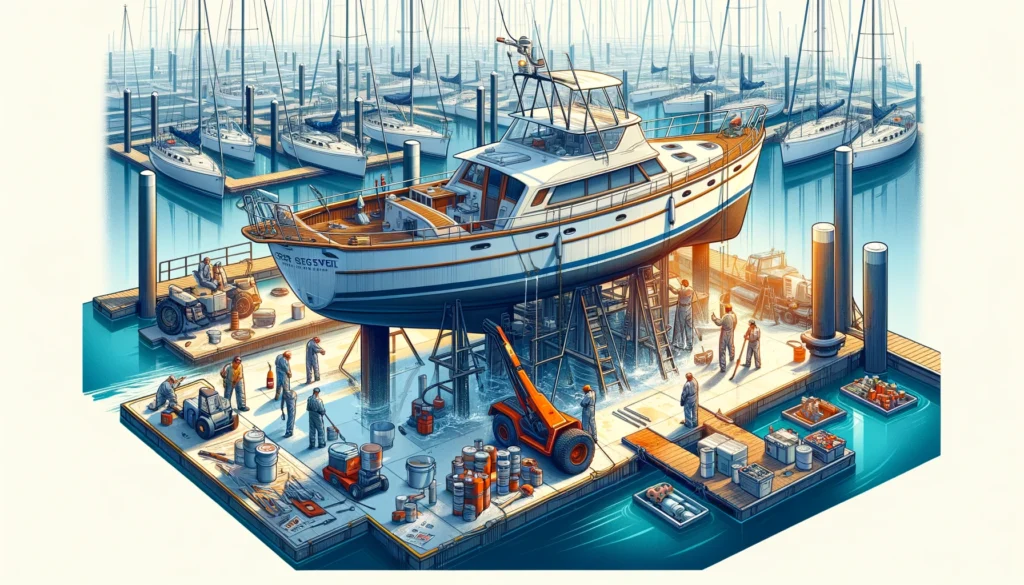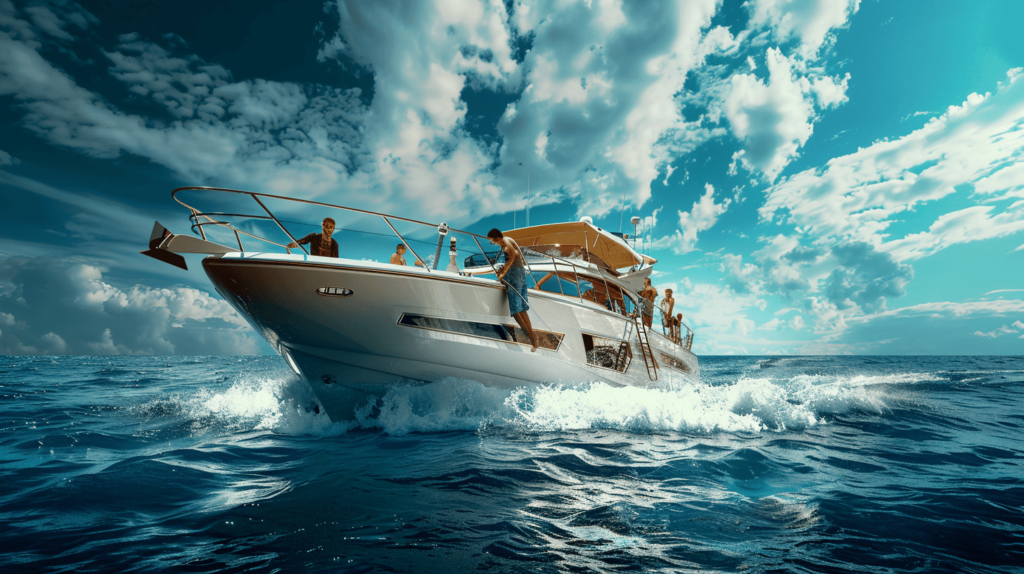As a devoted boating enthusiast who has spent countless hours navigating the waters, maintaining vessels, and sharing my passion with fellow sailors, I understand the challenges and rewards that come with boat ownership. One of the most insidious foes of any boat owner is corrosion—a relentless force that can compromise the integrity, performance, and safety of your vessel. Today, I’ll guide you through the process of detecting and preventing boat corrosion, ensuring that your maritime companion remains in top condition for years to come. This article is not just about sharing essential boat maintenance tips; it’s about fostering a deeper understanding and respect for the craft of boat maintenance.
Contents
Understanding Boat Corrosion
Corrosion is the process by which metal deteriorates due to a chemical reaction with its environment. In boating, this is most commonly seen as rust on steel parts or pitting and crevice corrosion on aluminum and stainless steel components. Saltwater is particularly aggressive in promoting corrosion, making it a significant concern for sea-going vessels.
Types of Corrosion
- Galvanic Corrosion: Occurs when two dissimilar metals are in electrical contact in an electrolyte (like seawater), leading to the more active metal corroding.
- Electrolytic (Stray Current) Corrosion: Caused by stray electrical currents flowing through the water, leading to rapid metal loss.
- Crevice Corrosion: Develops in oxygen-depleted areas, such as under barnacles or in crevices where water is stagnant.
- Pitting Corrosion: A localized form of corrosion that leads to the creation of small holes in the metal.
Detecting Corrosion
Regular inspection is key to detecting corrosion early. Pay special attention to areas where different metals come into contact, around electrical components, and in hard-to-reach places where water might collect. Look for signs of discoloration, pitting, or metal flaking. Using a multimeter to check for stray currents can also help identify areas at risk of electrolytic corrosion.
Preventing Corrosion
Anode Protection
Zinc or magnesium anodes (sacrificial anodes) are essential for protecting your boat from galvanic corrosion. These anodes corrode in place of your boat’s metal parts. Regularly inspect and replace these anodes before they are completely deteriorated.
Electrical System Maintenance
Ensure your boat’s electrical system is correctly installed and maintained. This includes proper grounding and bonding of all components to prevent stray currents that can cause electrolytic corrosion.
Paint and Coatings
Use anti-corrosive paint and coatings to protect your boat’s hull and metal parts. Barrier coatings can be particularly effective in preventing corrosion on underwater metals.
Regular Cleaning
Keeping your boat clean is not just about aesthetics; it’s about health. Regular washing, especially after saltwater exposure, can significantly reduce the risk of corrosion. Ensure bilges and other areas where water collects are kept dry to prevent crevice and pitting corrosion.
Control Moisture
Controlling moisture inside the boat is crucial, especially in enclosed spaces where condensation can occur. Use dehumidifiers and ensure good ventilation to keep these areas dry.
Proper Storage
When not in use, store your boat in a dry, covered area to protect it from the elements. If outdoor storage is your only option, use a high-quality, breathable boat cover.
Regular Inspection and Maintenance
Develop a routine inspection and maintenance schedule. This includes checking for and addressing any signs of wear and tear, ensuring all electrical components are functioning correctly, and keeping an eye out for any areas that may be prone to collecting water or moisture.
Incorporating these boat upkeep advice practices into your regular maintenance routine can significantly extend the life of your boat and enhance your enjoyment of the boating lifestyle. Remember, prevention is always better than cure, especially when it comes to combating corrosion.
Conclusion
Detecting and preventing boat corrosion is a critical aspect of boat maintenance that should never be overlooked. By understanding the types of corrosion, regularly inspecting your vessel, and implementing preventative measures, you can protect your investment and ensure many years of safe and enjoyable boating. Embrace these practices as part of your boating journey, and you’ll not only preserve the condition of your boat but also enhance your overall boating experience. Happy sailing!



